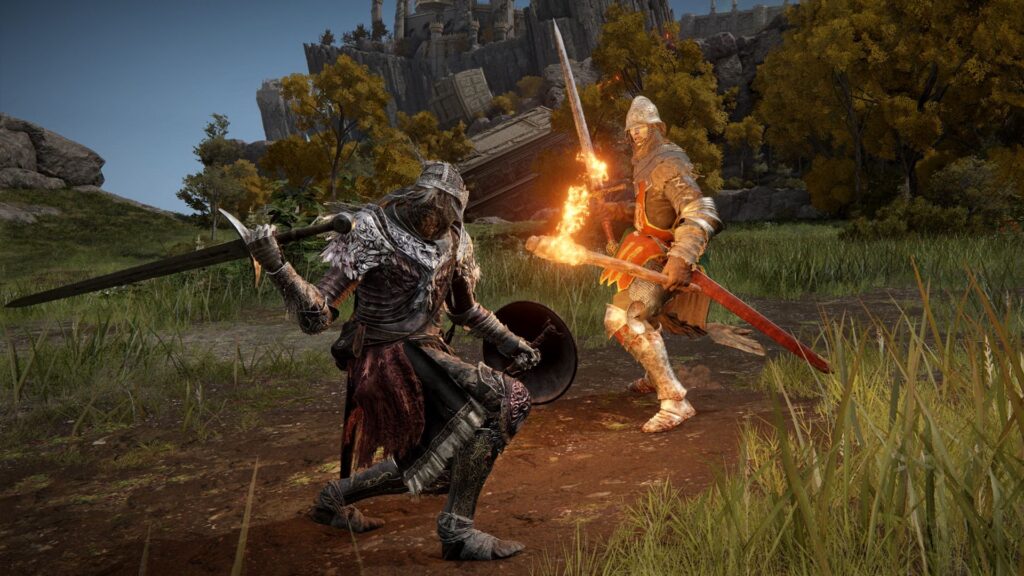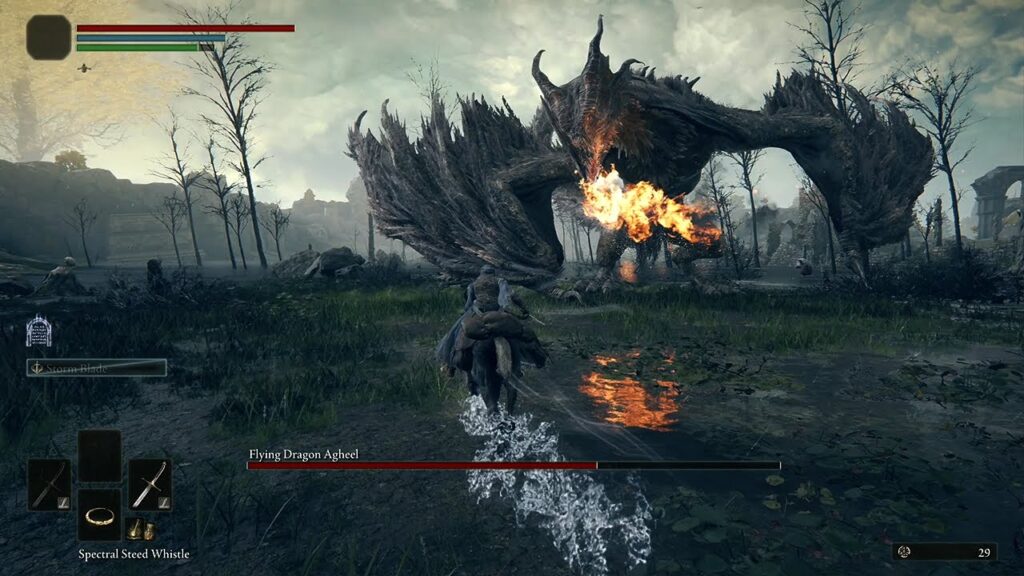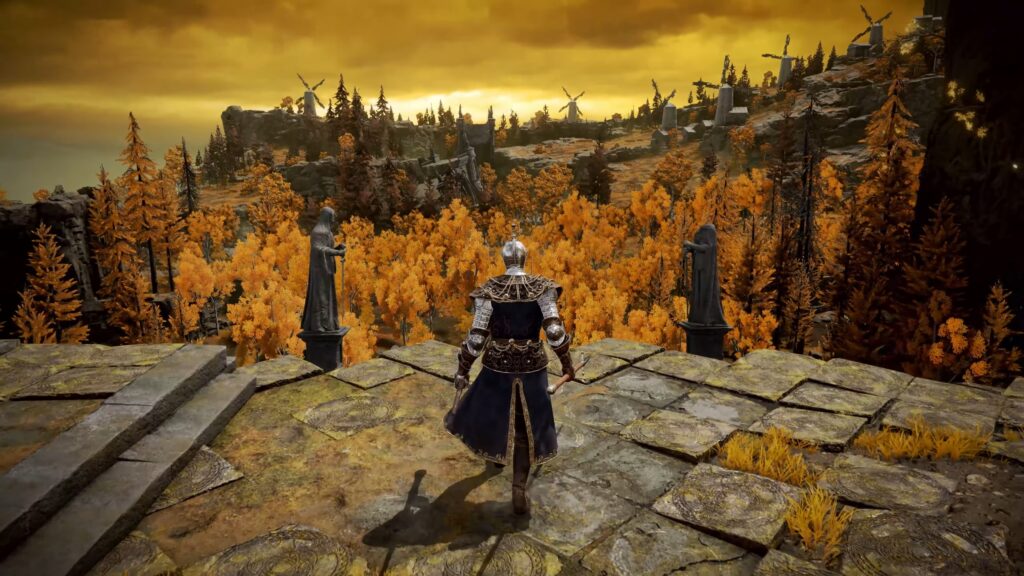Let me begin by making two things clear:
1. This is not a review of Elden Ring. I originally planned it to be one, but due to factors that I will explain below, I couldn’t bring myself to fully complete the game. As a critic, I can’t review something I haven’t fully experienced, so take this article only as an opinion piece from someone who has put roughly 30 hours into his save file.
2. Despite what you are about to read, I don’t believe that Elden Ring is a bad game. A lot of what it does has a great deal of merit, and I wish that I could agree with the many who love it. However, it’s certainly not the 10/10 ultra-masterpiece that many reviewers would have you thinking. In this case, I believe there are fundamental, logic-based arguments to be made that the games media industry is biased towards giving games like Elden Ring favorable scores. That is what this article is meant to be about.
But with all that said, here’s why Elden Ring is a terrible, horrible, no good, very bad video game that no one should ever play.

In summary, here’s how my first 10-or-so hours of Elden Ring went: I started the game, completed the tutorial, waited for the rest of the game to finish downloading, and entered the starting area. Then, I took in the vast world around me, hyped myself up for an adventure, and promptly spent nine long, arduous hours fumbling about because I couldn’t find the items needed to progress. The spirit calling bell, the first map, and even the mount were placed in areas that weren’t immediately clear/accessible, and without them, none of the rest of the game was even potentially achievable.
As an example, obtaining Torrent (the games’ rideable horse) requires the player to go through multiple difficult encounters with many fearsome enemies. On the surface, this seems understandable; this is a successor to Dark Souls, after all. The problem lies with the fact that the only way to obtain better gear is to go into the world and find it, but without the horse and following important items (such as the spirit bell), doing so is an almost certain death sentence. In my case, this led to a vicious cycle of banging my head against the difficult encounters, then going out to find better gear and getting beaten by the enemies guarding them, then going back to the difficult encounters and dying more until I finally just ran out of patience and forced my way past them. Because I wasn’t given the proper tools needed to clear even the most basic of the games’ trials, this wasn’t “challenging,” it was unfair, and easily the worst part of my playthrough. Eventually, I began to think “if I hate it this much at the beginning of the game, what’s the rest going to be like?” And at that point, I realized that I wasn’t having any fun with the game, and that I wouldn’t be able to complete it for review.
Elden Ring is littered with design choices like this. The game is supremely difficult, meaning that going into an encounter unprepared feels like a foregone conclusion, but because getting better gear also requires difficult fights, the player can’t progress without wasting time on battles they don’t have a fair chance of defeating. The player character also seems deliberately sluggish to control, and certain bosses move so fast that a proper reaction just isn’t feasible.
The “rune” system only worsens this effect, since you lose all that you are carrying any time you die, and if you can’t get them back within one life, they are gone for good. These game mechanics punish players who aren’t intimately familiar with the combat system of previous games in the series by pushing them into situations where they can’t improve their character enough to match the intended difficulty level.
I understand that this is a game that is meant to be extremely difficult, and I don’t hate it for that reason. There are many difficult games that I’ve found incredibly rewarding in much the same way players claim Dark Souls, Bloodborne, and Elden Ring to be. The difficulty itself isn’t the issue I have – it is the way in which that difficulty is implemented that sours the experience for me.

I could go on about my qualms with the game for at least five more paragraphs, but that isn’t the point that needs to be made here. Now that I’ve asserted that Elden Ring isn’t the masterpiece that most reviewers claim, that raises a question: Why is it that reviews have unanimously heaped praise on it? If these issues really are a detriment to the game, wouldn’t at least a few reviewers be just as miffed as me?
Well, it comes down to what I mentioned at the top of this article: As a critic, I can’t review Elden Ring in good faith without completing the game. I think most upstanding review platforms would agree with me on this, but that also raises an issue. Given the limited time that reviewers are allotted to play and review a game before release, they can’t just throw any old gamer at Elden Ring and expect them to be able to finish in time. No, they need to give it to someone who’s familiar with the series and will be able to bypass the difficulty curve through their vast wealth of experience. They need… someone who’s already a huge fan of Dark Souls.
It’s no secret that games like Dark Souls and Elden Ring don’t hold the most expansive of audiences. In most cases, these experiences are designed for a very specific subset of veteran gamers, and leave little room for “casuals” or anyone who doesn’t enjoy the teeth-grinding challenges on offer. Even as a person with many game-playing friends, I only really have one that I could recommend something like Elden Ring to. It’s a very niche type of game, and that’s not a bad thing. However, it does mean that when writing a review of it, it’s important to consider its accessibility during the scoring process. Simply put, if most people wouldn’t like a game due to difficulty, its score should be lessened to reflect this. Even highly acclaimed difficult games like Hollow Knight and Nioh are held to this standard.
Elden Ring, on the other hand, doesn’t have this issue. Because review outlets know the reputation of developer FromSoftware, they throw only their roughest and toughest gamers at the challenge, which results in reviews that reflect only the perspective of that very niche subset. Of course, it’s great that those players have so much fun with the games, but a game that most people won’t want to play shouldn’t be getting 10/10 scores, end of story.
This same logic also applies to judges for award shows such as The Game Awards. Only experienced gamers that can play all the nominated games would be chosen, and their perspective would influence the winning titles. It isn’t the fault of the reviewers or the judges, but of the system that incentivizes this limited perspective in reviews for this particular series of games.

I will admit that my motivation to write this article may partially stem from my distaste for Elden Ring, and the bitter feelings I harbor for not enjoying it as much as my peers. However, that doesn’t take away from the points I’ve made here. Elden Ring isn’t a 10/10 game, or even a 9/10 for most players. It is a game that appeals to a small subset of the gaming population, but that small group makes up the vast majority of those reviewing it. It’s a vicious cycle of positivity that I can’t help but despise, and as a critic, I hope that my words will help you make a better purchasing decision.
For those who want it, here’s a more widely applicable review of Elden Ring: In a lot of ways, it’s like a lump of coal. It’s clunky, messy, and undoubtedly stubborn, but if you can push on it hard enough, you might find a diamond hidden inside. Just make sure that you can handle the pressure before you start playing.

